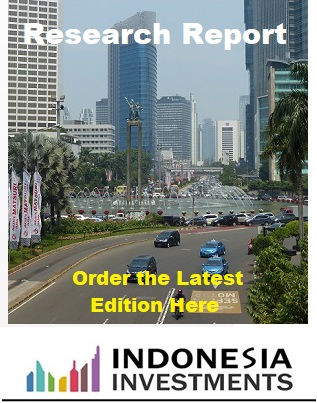Renewed Pressures Push Indonesia's Rupiah to IDR 14,550 per US Dollar
The Indonesian rupiah had been fairly stable against the US dollar since Bank Indonesia's aggressive 0.50 percent rate hike in late-June (a move that caught many by surprise). However, after the central bank of Indonesia decided to leave its benchmark interest rate unchanged at the July policy meeting (which was concluded on Thursday, 19/07), the rupiah has become under heavy pressure again.
It sure seems like market participants are unhappy to see Bank Indonesia pausing the aggressive monetary tightening that it had showed over the past two months (when the country's benchmark interest rate was raised from 4.25 percent to 5.25 percent in three consecutive meetings, including one unscheduled meeting).
Meanwhile, in a statement released on its website, Bank Indonesia said Indonesia's economic growth in full-year 2018 is expected to fall in the lower end of its 5.1 - 5.5 percent target range, particularly due to weaker-than-estimated exports. This adjustment reinforces Indonesia Investments' forecast that Indonesia's accelerating economic growth comes at a very gradual level. But, for now, we maintain our 5.2 percent (y/y) outlook for full-year 2018. Besides GDP growth, there is also concern about the nation's widening current account deficit.
By noon on Friday (20/07) the Indonesian rupiah peaked just above IDR 14,550 per US dollar according to the Bloomberg Dollar Index, implying it depreciated 0.64 percent against the greenback. This rupiah level is the weakest since October 2015.
Several Asian currencies are falling heavily on Friday (20/07), including China's yuan and South Korea's won. However, the Indonesian rupiah is the most fragile Asian currency at the moment. A depreciating yuan usually puts pressure on other Asian currencies because those nations need to keep their export products competitive.

But although Bank Indonesia's decision to pause further monetary tightening may be a factor that puts pressure on the rupiah, there are also several key external factors that put pressure on the rupiah as market participants seek safe haven assets.
Earlier this week US Federal Reserve Chairman Jerome Powell testified before the House's Financial Services Committee. Powell said he is upbeat about the US economy and this justifies continued interest rate increases. He added that rates are expected to rise gradually in the foreseeable future. Therefore, markets assume to see two more interest rate hikes in the world's top economy in 2018.
However, US President Donald Trump said he is not thrilled about the Fed's decision to raise rates as it curtails US economic growth.
-----------------------------------------------------------------------------------------------------------------------------------------------------------
• Indonesia Investments' Research Report (edition July 2018) will be out on Monday 6 August 2018
-----------------------------------------------------------------------------------------------------------------------------------------------------------
Another negative external factor is concern over China's slowing economic growth. The country's official Q2-2018 GDP growth figure was reported at 6.7 percent (y/y), slowing from 6.8 percent (y/y) in the preceding quarter and constituting the weakest quarterly growth figure since 2016. Considering the full impact of the US-China trade war is still to kick in, analysts believe China's economic growth is bound to ease further in the period ahead.
Meanwhile, the International Monetary Fund (IMF) predicts the trade tariffs, if all implemented, could curtail global GDP by 0.5 percentage point, or around USD $430 billion below the current projection for 2020.
Bank Indonesia's benchmark rupiah rate (Jakarta Interbank Spot Dollar Rate, abbreviated JISDOR) depreciated 0.71 percent to IDR 14,520 per US dollar on Friday (20/07).
Indonesian Rupiah versus US Dollar (JISDOR):
| Source: Bank Indonesia-
Poll Indonesia Investments:
Who would you vote for in Indonesia's 2019 presidential election?
Voting possible: -
Results
- Joko Widodo (57.6%)
- Prabowo Subianto (31.9%)
- No opinion (5.7%)
- Someone else (4.8%)
Total amount of votes: 16331

